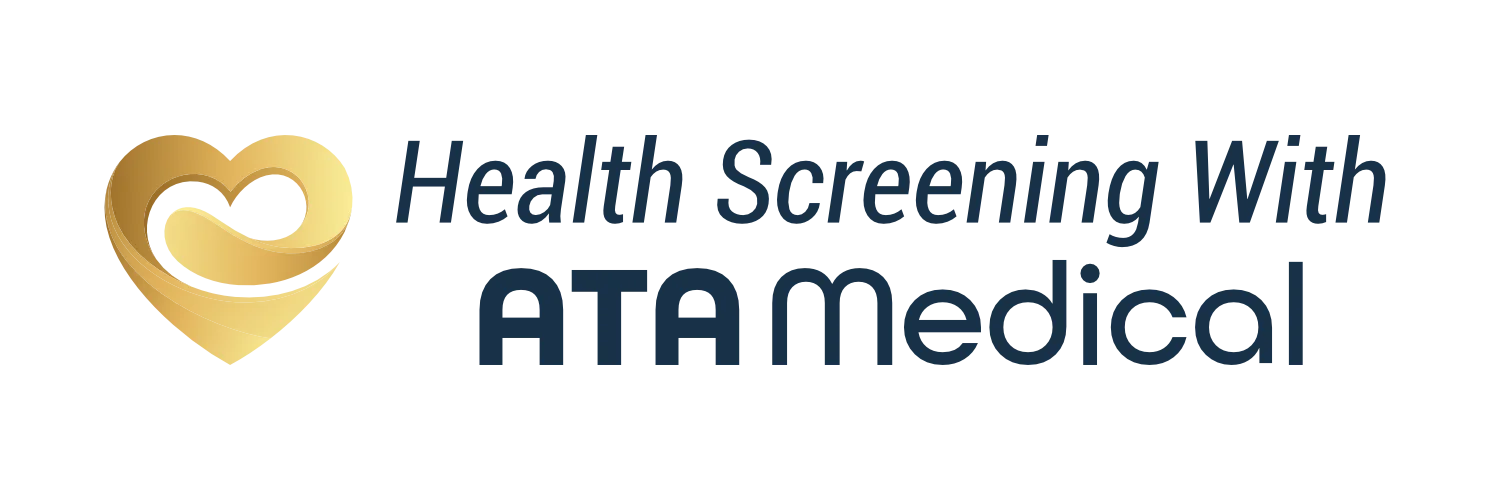Bone Density Test Singapore
What Is a Bone Density Test?
A bone density test, also known as bone mineral densitometry, is a simple and non-invasive procedure designed to measure the strength and mineral content of your bones. It serves to:
- Evaluate the risk of osteoporosis in people of different age groups (not limited to older adults), allowing for early prevention and treatment, especially in areas prone to fractures.
- Track bone health over time and assess the effectiveness of treatments or lifestyle changes, particularly for individuals diagnosed with osteopenia or osteoporosis.
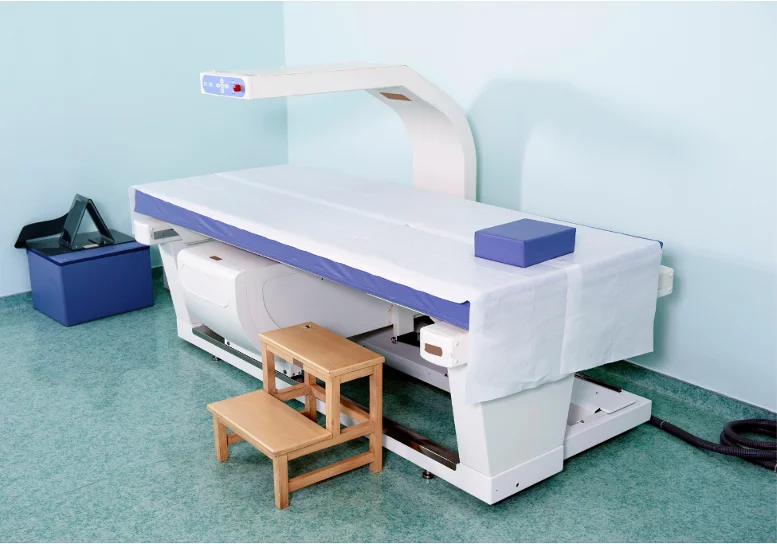
What Is Bone Mineral Density?
Bone mineral density (BMD) represents the concentration of minerals like calcium and phosphorus within a section of bone. It is an essential indicator of bone strength and resilience. Stronger bones with higher BMD are less likely to fracture, while lower bone density can indicate weakened bones that are more vulnerable to breaks.
Who Should Consider a Bone Density Test?
In Singapore, a bone density test is recommended for individuals with the following risk factors:
- Age over 50: Bone density naturally declines with age, heightening the likelihood of osteoporosis.
- Post-menopausal women or those who have had an oophorectomy (removal of ovaries): Lower oestrogen levels following menopause or surgery may hasten bone loss.
- Family history of osteoporosis: Genetics can significantly influence bone health, making those with affected family members more at risk.
- History of fractures: Previous fractures may signal weakened bones and an increased risk of fractures in the future.
- Small body frame or low body weight: People with smaller bones or lower body weight may have less bone mass, increasing their susceptibility.
- Height loss: Losing height over time could indicate vertebral fractures or bone deterioration linked to osteoporosis.
- Nutritional deficiencies: Lacking essential nutrients like calcium, magnesium, vitamin D, or vitamin K can contribute to bone loss.
- Sedentary lifestyle: Insufficient physical activity, particularly weight-bearing exercises, can lead to decreased bone density.
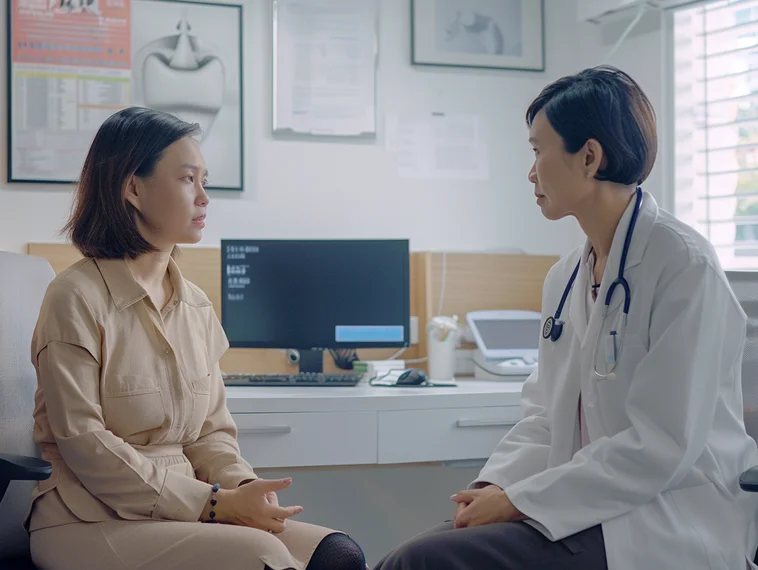
How Is a Bone Density Test Done?
A bone density test is a quick and straightforward procedure that measures bone mineral density, especially in fracture-prone sites, like the spine, hips, and occasionally the forearm. The scan employs Dual-Energy X-ray Absorptiometry (DEXA), a widely used technology for routine testing and monitoring of bone health, as it emits minimal ionising radiation. During the test, you will lie on a padded table while a scanner moves over your body, providing detailed readings of your bone density. The entire process typically takes 10 to 30 minutes.
Interpreting Bone Density Test Results
Bone density test results are generally presented as T-scores and Z-scores:
T-Score
The T-score compares your bone density to that of a healthy 30-year-old adult, represented by a score of 0.
- Scores above -1 are considered normal.
- Scores between -1 and -2.5 indicate low bone mass, also known as osteopenia.
- Scores below -2.5 may suggest osteoporosis.
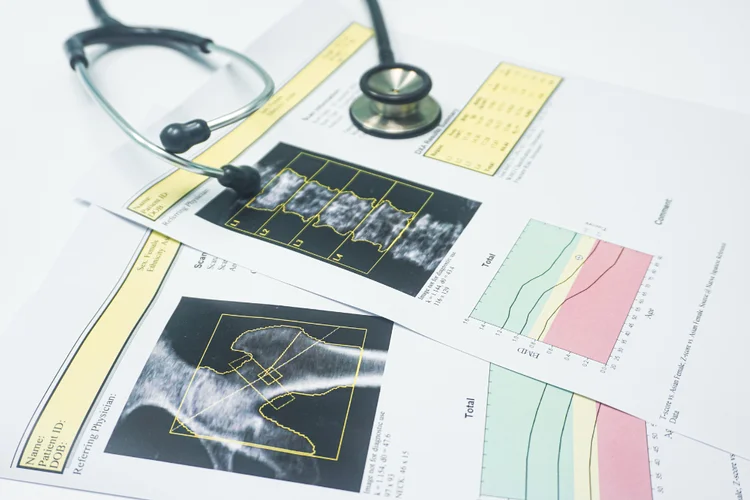
Z-Score
The Z-score evaluates your bone density in comparison to others of the same age, gender, and body size. It is particularly useful for diagnosing bone health in younger individuals.
Bone Density Test Preparation
To ensure optimal results, follow these preparation steps before your test:
- Avoid calcium supplements for 24 hours before the test, as they can temporarily increase bone density readings.
- Wear loose-fitting clothes without metal components, such as zippers, belts, or buttons, as metal can interfere with the scan and reduce the accuracy of results.
- Inform your doctor if you have recently undergone imaging tests, such as a barium exam or a CT scan with contrast dye, as these can affect the measurements.
Bone Density Test Cost in Singapore
At healthscreening.sg, we provide a range of DEXA scans and bone health assessments, with the prices as follows:
| Test | Price* |
|---|---|
| Consultation | From $49.05 |
| Teleconsultation (for reviewing of results) | From $38.15 |
| Bone Mineral Densitometry | |
| Bone Mineral Density Test - DEXA Bone Densitometry (Hip & Spine) | $141.70 |
| DEXA Body Composition | |
| DEXA Body Composition with Visceral Adipose Tissue (VAT) | $308.47 |
| Others | |
| Ultrasound Heel (Bone Mass Density) | $43.60 |
| Vitamin D Deficiency Screen | $141.70 |
| Deficiency Screen (Folate, Vitamin B12, Vitamin D, Iron, Total Iron Binding Capacity, % Iron Saturation, Ferritin) | $161.32 |
| Total Testosterone | $38.15 |
| Free Testosterone | $147.15 |
|
Men &
Women
Wellness (Full Body Screening)
Note: Fasting of 8 hours is required for your blood test |
From $152 |
*Prices are NETT and inclusive of GST.
^Prices last updated on
Jan 28, 2026. While every effort is made to keep pricing information up to date, please contact our team to confirm the latest rates.
Alternatively, you can consider our health
screening packages for a more holistic assessment of your health. These packages can include
advanced tests such as Bone Densitometry and/or Ultrasound Heel (Bone Mass Density) scans for a thorough
review of your bone health.
Where to Do a Bone Density Test in Singapore?
Please note that our DEXA Bone Densitometry (Hip & Spine) and DEXA Body Composition with Visceral Adipose Tissue (VAT) scans are conducted at our partner radiology clinic located in Novena.
Why Choose Us?

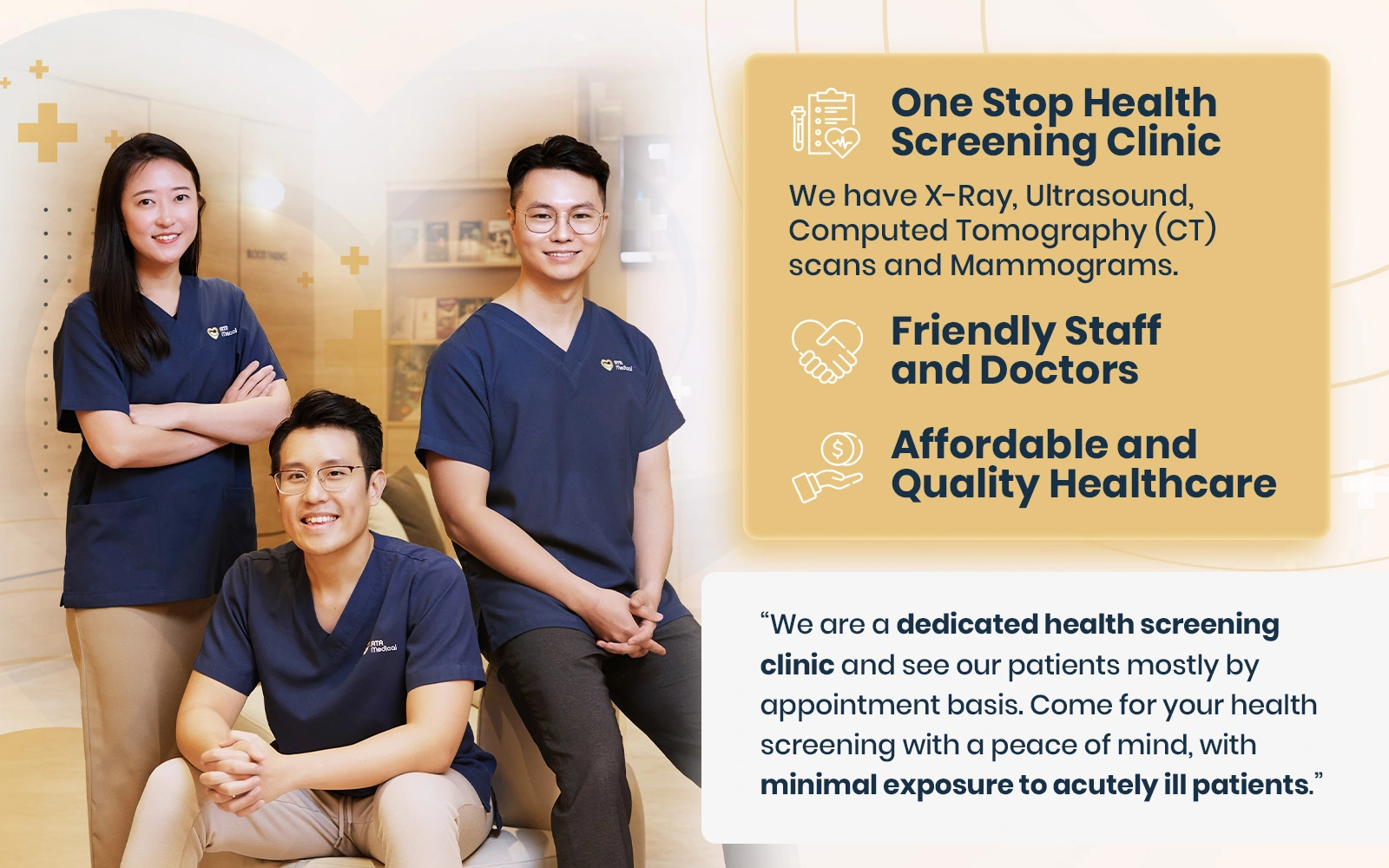

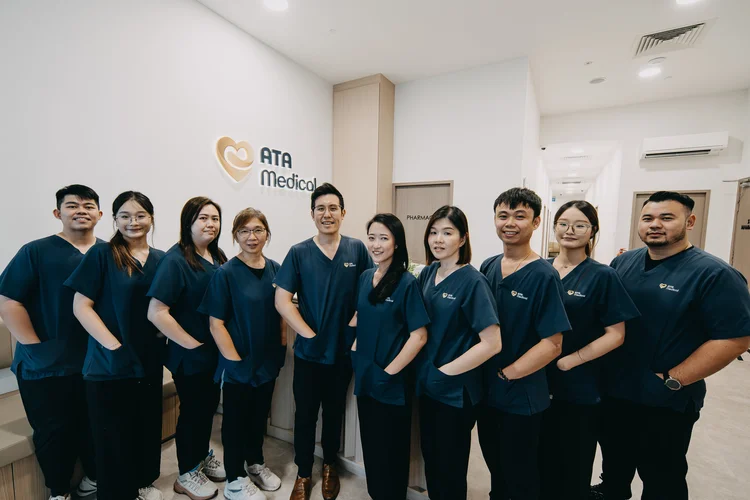
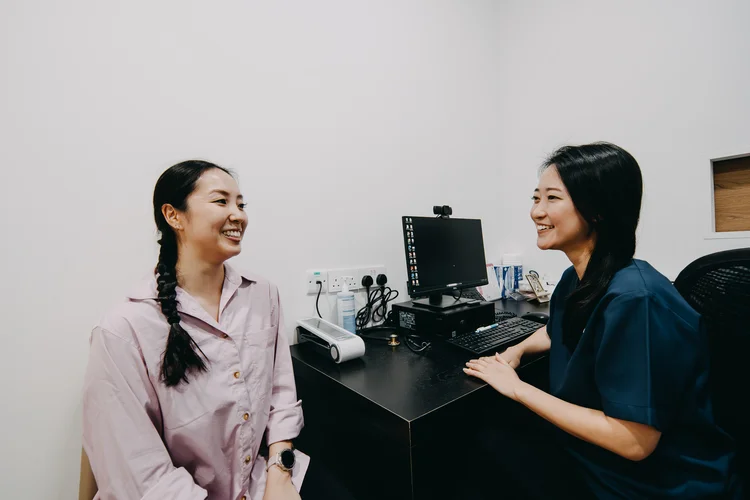


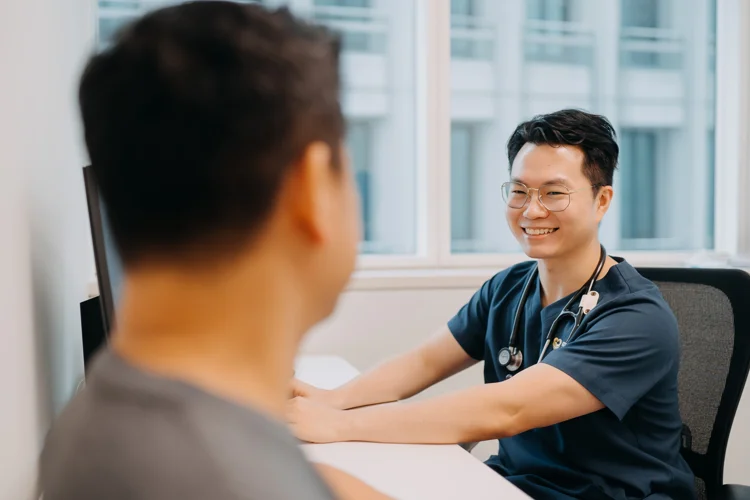
Navigate Easy With Google Maps
Health Screening Singapore (Anson House)
Nearest MRT: EW15 Tanjong PagarHealth Screening Singapore (Camden Medical Centre)
Nearest MRT: TE13 Orchard BoulevardHealth Screening Singapore (CPF Jurong Building)
Nearest MRT: NS1/EW24 Jurong EastFrequently Asked Questions (FAQ)
A DEXA Bone Density Test focuses on measuring bone mineral density to evaluate bone strength and detect osteoporosis, typically targeting areas like the hip and spine. In contrast, a DEXA Body Composition scan assesses overall body composition, including measurements of body fat, muscle mass, and bone mass, along with insights into visceral adipose tissue (VAT). While both tests use the same DEXA technology, the Bone Density Test specifically evaluates bone health and strength, whereas the Body Composition Test provides a broader analysis of body composition, including fat and muscle distribution.
At healthscreening.sg, we provide the DEXA Bone Density Test (Hip & Spine) for $141.70 and an Ultrasound Heel (Bone Mass Density) test for $43.60. All prices are NETT and inclusive of GST.
In Singapore, the average cost of a DEXA bone density scan ranges from $100 to $200. At healthscreening.sg, the DEXA Bone Density Test (Hip & Spine) is priced at $141.70, while the Ultrasound Heel Bone Mass Density test costs $43.60. All prices are NETT and include GST.
Yes, polyclinics in Singapore can provide referrals for bone density tests, often conducted at hospitals or specialised centres. Alternatively, at healthscreening.sg, we provide the DEXA Bone Density Test (Hip & Spine) for $141.70 or an Ultrasound Heel Bone Mass Density test for $43.60. All prices are NETT and inclusive of GST.
Yes, you can request a bone density test from your GP. At healthscreening.sg, the DEXA Bone Density Test (Hip & Spine) is available for $141.70, and the Ultrasound Heel Bone Mass Density scan costs $43.60. All prices are NETT and include GST.
A bone density scan is recommended if you have risk factors such as being over 50, experiencing menopause, having a family history of osteoporosis, or a history of fractures. It provides vital insights into bone health, allowing for preventive or treatment measures if necessary.
No, a bone density test is completely painless and non-invasive. During the procedure, you simply lie on a padded table while a scanner moves over the relevant areas.
Bone density scans, especially DEXA scans, are widely used, with minimal radiation exposure. Side effects are rare and usually limited to minor discomfort from lying still during the procedure.
Yes, bone density scans are useful, especially for individuals at risk of osteoporosis or fractures. They provide essential data on bone health, helping guide treatment and preventive strategies.
Bone density scans are generally advised for those aged 50 and above in Singapore. However, individuals with risk factors, such as menopause, a family history of osteoporosis, or previous fractures, may benefit from earlier testing. If you are unsure, it is best to consult a doctor to determine if the test is suitable for your health needs.
Engaging in regular weight-bearing and resistance exercises, maintaining a diet rich in calcium and vitamin D, avoiding smoking, and limiting alcohol consumption can all help improve bone mass density. Consulting a doctor or fitness specialist for personalised recommendations can also be beneficial.
Individuals with risk factors for osteoporosis, such as older age, menopause, a family history of osteoporosis, or previous fractures, are generally recommended to go for a bone density scan. If you are unsure, it is best to consult your doctor to assess your specific risks and determine if the test is right for you.
A bone density test evaluates bone strength by measuring bone mineral density, often to assess osteoporosis risk. A bone scan, in contrast, is a nuclear imaging procedure that detects bone abnormalities such as fractures, infections, or cancer.
No fasting is needed for a bone density test. You can eat and drink as usual. However, avoid calcium supplements for 24 hours before the test, wear loose clothing without metal, and inform your doctor about any recent imaging tests like a barium exam or CT scan with contrast dye.
Milk and other fortified dairy products are excellent for bone health due to their calcium and vitamin D content. Alternatives like fortified plant-based milk, orange juice with added calcium and vitamin D, and green tea are also beneficial.
At healthscreening.sg, the DEXA Bone Density Test (Hip & Spine) costs $141.70, while the Ultrasound Heel Bone Mass Density test is priced at $43.60. All prices are NETT and include GST.
To boost bone mass density, consider engaging in weight-bearing and resistance exercises, eating a diet high in calcium and vitamin D, avoiding smoking, and moderating alcohol intake. Supplements may also help if your diet falls short. It’s best to consult a doctor or fitness specialist for tailored advice.
No, bone mass refers to the total amount of bone tissue in the body, while bone density measures the concentration of minerals in a specific bone area, indicating its strength and quality.
A bone mass density chart displays two main scores: the T-score and Z-score. The T-score compares your bone density to a healthy young adult, while the Z-score compares it to individuals of the same age. T-scores above -1 are normal, between -1 and -2.5 indicate low bone mass (osteopenia), and below -2.5 suggest osteoporosis.
